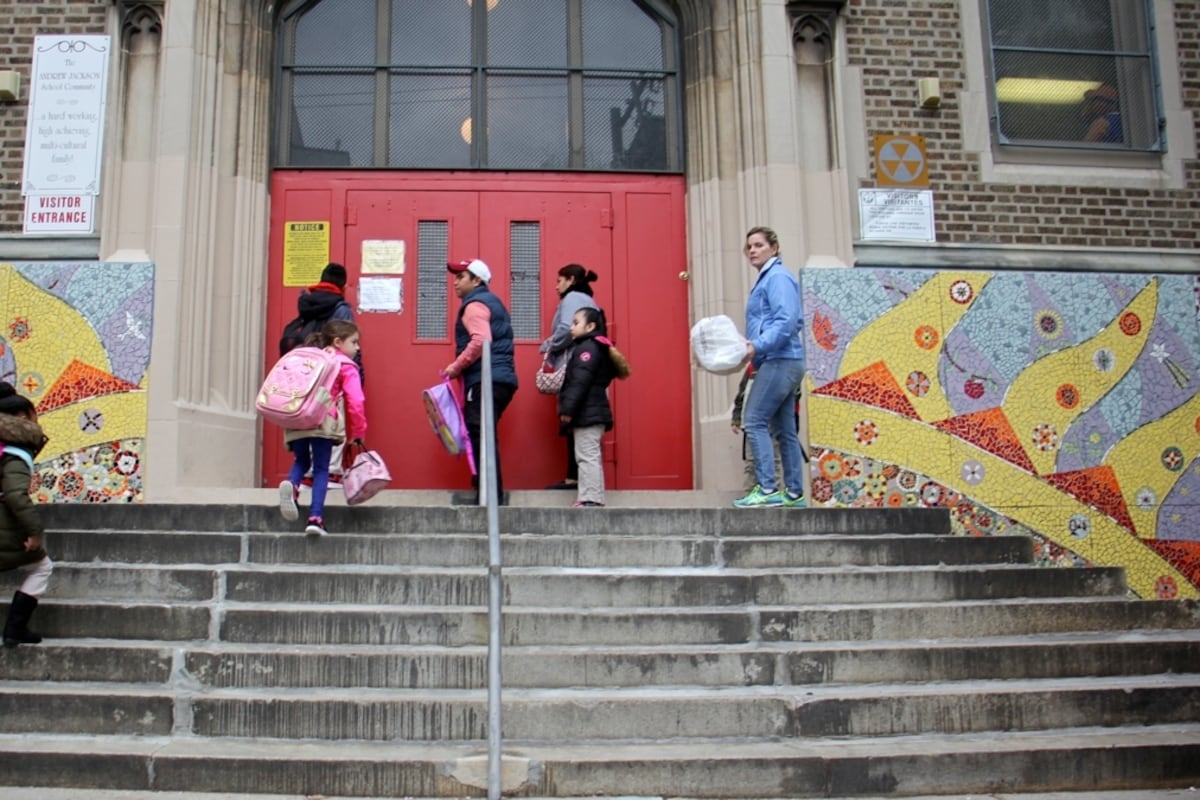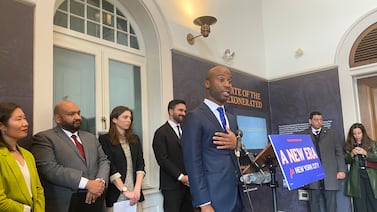As Philadelphia schools face a growing asbestos crisis, one member of the City Council says ‘the moment is now’ to create an independent authority to handle school building construction and renovation instead of the school district.
Isaiah Thomas, who chairs the City Council’s education committee, told reporters he will introduce a resolution Thursday to hold hearings on creating such an authority.
Thomas said in a briefing on Tuesday he hopes having an independent body manage public school facilities would build trust with state lawmakers who have been wary about sending billions of dollars to repair and upgrade Philadelphia schools. And with state coffers flush with $8 billion in surplus funding for the upcoming budget cycle, Thomas said the city might not get another chance to get the money needed to update classrooms, remediate buildings laden with lead and asbestos, and build new and modern schools fit for students.
“If we can’t get this done in this budget cycle, I’m not sure that we’ll ever get the type of down payment that we need to really put a dent in the issue,” Thomas said. “If we wait until June, or July, it might actually be too late.”
Philly students, parents, and educators: How has asbestos in your school affected your educational experience? We want to hear your story.
Thomas’ proposal comes after several Philadelphia schools closed in recent weeks due to failing infrastructure that revealed damaged asbestos, and these disruptions have left families on edge. Superintendent Tony Watlington has said repeatedly the district anticipates more damaged asbestos will likely be found, but the possible scope of these shutdowns remains unclear. The asbestos problems underscore broader concerns about aging and decrepit facilities that have angered students and teachers for years. The average school building in the district is more than 70 years old.
The asbestos-driven closures have also created tension between the district and some city officials (including Thomas) who say school leaders haven’t been sufficiently transparent about the problem.
The school district had a non-committal response to Thomas’ proposal, saying it looks forward “to continuing discussions about how to improve our facilities because all students and staff should have access to 21st century learning spaces.”
The school district estimates it needs $4.5 billion to address the most pressing structural needs. Thomas is asking Harrisburg for $5 billion over five years to fix up schools, and he’s asking the district for a “safe facilities plan” detailing the building needs and costs to demonstrate how that $5 billion would be spent.
Thomas said many of the details regarding how the new authority would be staffed, managed, and funded will have to be worked out. Functionally, Thomas said it could look something like the energy authority in the city.
But Board of Education President Reginald Streater said in a Tuesday statement the board’s current partnership with the nonprofit Philadelphia Industrial Development Corporation and the Philadelphia Authority For Industrial Development has been helping with school construction and facilities issues. Streater said the priority is to get more funding.
“With the infusion of more sustained, long-term funding the District has the opportunity to accelerate the work that needs to be done,” he said.
According to Thomas’ resolution, the new authority would have the ability to “bond and manage the school facilities” modernization process.
Thomas said his office is also in talks with “experts” to see how other cities and states have handled similar authorities, like New York City’s construction authority.
Across the Delaware River in New Jersey, the Schools Development Authority — an independent agency tasked with funding and managing construction for some of the poorest districts in the state — has been plagued by political scandals. The authority is also essentially out of money, and New Jersey lawmakers are now looking to overhaul it.
But Thomas said he is “optimistic” Philadelphia can get it right.
According to Thomas, some lawmakers in Harrisburg have been hesitant to spend more money to improve Philadelphia’s school buildings because the district has been accused of misspending money in the past, a charge the district has denied.
Thomas said what legislators want to see is “consistency” and a stable system that could guarantee money is spent responsibly.
“In order to get resources in this moment, we have to show Harrisburg a certain level of consistency, and reliability,” Thomas said.
Thomas’ proposed authority would build on an idea former Councilmember Maria Quiñones-Sánchez championed last year.
“We’re not going to pretend that this is a concept that we created,” Thomas said, “but what we are going to do is try to grab the bull by the horns and pull this thing across the finish line.”
Dale Mezzacappa is a senior writer for Chalkbeat Philadelphia, where she covers K-12 schools and early childhood education in Philadelphia. Contact Dale at dmezzacappa@chalkbeat.org.
Carly Sitrin is the bureau chief for Chalkbeat Philadelphia. Contact Carly at csitrin@chalkbeat.org.






